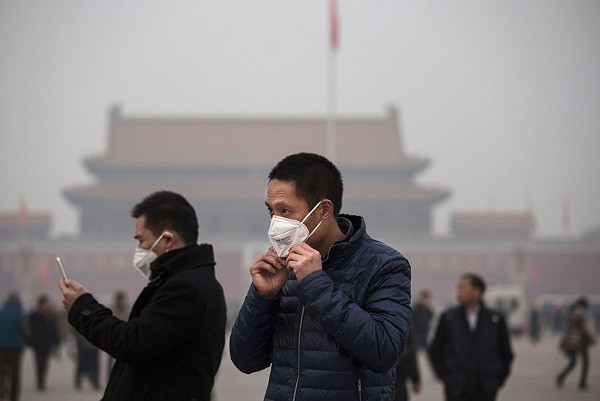As the smog eased over China's capital, Beijing authorities lifted the air pollution red alert Thursday, Bloomberg reported.
The level of PM2.5, which refers to air pollutants with diameters smaller than 2.5 microns and can go deep into the lungs when inhaled, was at 15 micrograms per cubic meter as of 4 p.m. Thursday, down from 207 micrograms from the previous day.
Authorities blamed coal burning and vehicle exhaust as the two top causes of air pollution that left the city covered in thick smog in the last few weeks, the Global Times reported.
The red alert--the first one ever implemented since the emergency air pollution response was put in place in 2013--was issued after PM 2.5 levels reached as high as 600 micrograms per cubic meter last week, according to Yahoo News.
The red alert closed down schools and shut down more than 2,000 factories and 3,500 constructions sites. Authorities also imposed an odd-even license plate scheme that cut down the number of vehicles on the roads by at least half.
Beijing authorities said these measures were "effective in slowing down the process of smog accumulation." They emphasized that they will "fight well a hard battle to prevent and contain air pollution," Yahoo News reported.
Cheng Shuiyuan, professor of environmental and energy engineering at the Beijing University of Technology, said at a press conference that the PM2.5 level could have been 10 percent higher had those measures not been imposed.
"Pollutant emissions in Beijing were reduced by around 30 percent on average after the local government took early warning measures to curb air pollution," Cheng told the Global Times.



























